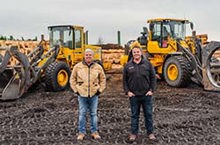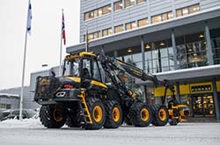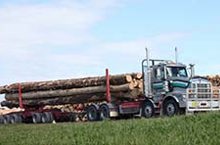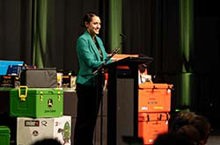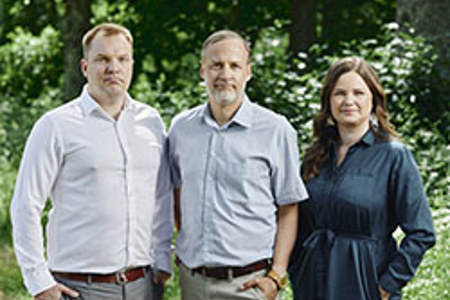
In a first of its kind trial, Metsä Group, a leading Finnish forest industry group whose operations span pulp, paperboard, tissue, and wood products, has started operating a carbon capture pilot plant at its Rauma mill, in cooperation with technology company Andritz, which supplied the plant. The pilot will test the capture of carbon dioxide from pulp mill flue gases, an application not previously trialled in the industry.
Various operating models will be tested concerning aspects such as energy consumption and the amount of carbon captured. The pilot period will also provide information about the need for flue gas treatment and the quality of the end product.
“So far, the technology appears to be working well with the pulp mill’s flue gases,” says Kaija Pehu-Lehtonen, SVP Business Development and the Director of Metsä Group’s carbon capture project.
As part of the Rauma pilot, Metsä Group will also explore the possibility of a larger-scale demo plant for carbon capture at a second location, with a potential capacity between 30,000 and 100,000 tonnes of captured carbon dioxide.
Bio-based carbon dioxide is a virtually untapped pulp mill side stream. Carbon dioxide can be used as a raw material – for example, in the chemical and fuel industries – and it can serve as a replacement for fossil-based raw materials. Carbon capture does not increase wood use at the pulp mill, nor does it undermine production efficiency.
“The investments related to capture are large, and the market is underdeveloped, so we’re proceeding carefully. In addition, the value chains from raw material to finished products are often new and complex, requiring close cooperation between the participants and insight into industrial operations,” says Mr Pehu-Lehtonen.
Through its development activities, Metsä Group wants to promote emerging markets. However, market development also depends on regulation at EU and national levels, as well as on investment support for the green transition. State aid for the green transition will play a key role in accelerating industrial investment, he adds.

